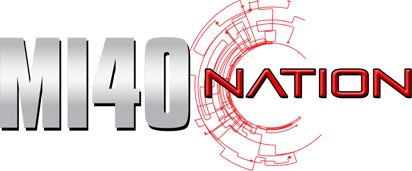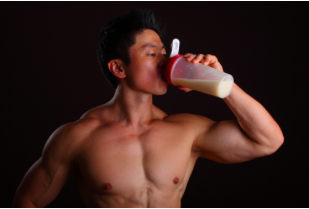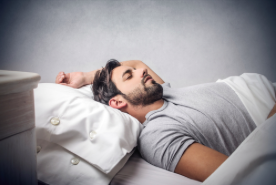Shopping Guidelines: Meat & Dairy
Grocery shopping can be a daunting task. Organic, cage-free, grass-fed, non-GMO, certified, fortified, petrified…there are so many choices and so ...

Grocery shopping can be a daunting task. Organic, cage-free, grass-fed, non-GMO, certified, fortified, petrified…there are so many choices and so ...
A new year has begun and now is the time to carve off that holiday excess. As fans of this ...
The importance of fibre as an essential nutrient is often overlooked and the daily requirements of obtaining enough presents a ...
Key Point Summary: – There are 5 ‘levels’, or stages, you must implement IN ORDER to optimize fat loss. – ...
Whey protein has been used in one form or another for at least 300 years, yet it has taken until ...
Even a slight vitamin deficiency can halt muscle gain in its tracks... the scary thing is, you're probably deficient already! ...
Everybody's familiar with testosterone, the grand daddy hormone most synonymous with both muscle and manhood. Today we provide a comprehensive ...
From boosting testosterone production & supporting lean muscle growth, to optimizing joint health & immune function, getting enough of this ...
Let’s face it – seeking out the right information can be confusing whether you are a bodybuilder or just an ...
Minerals like zinc and magnesium are necessary for us to properly use energy, detoxify our bodies, and hundreds of other ...
Question: “Will taking simple carbs after a workout negate the effect of growth hormone production from your workout and kill ...
When starting a diet, have you ever wondered why exactly hunger and cravings suddenly sky rocket? Obviously a reduced food ...
Question:
“Will taking simple carbs after a workout negate the effect of growth hormone production from your workout and kill your gains?”
Well, growth hormone is only released when blood glucose or blood insulin levels are low. Provided that you don’t consume carbohydrate during the workout, your growth hormone levels will not be negated; you’ll still get the spike and that will stay  elevated as long as you train without elevating your carbs. So the suggestion has been that as soon as you spike insulin, your growth hormone levels will be suppressed, but you’re still going to get that release if you’re training on a low-carb, or in a carb-depleted state.
elevated as long as you train without elevating your carbs. So the suggestion has been that as soon as you spike insulin, your growth hormone levels will be suppressed, but you’re still going to get that release if you’re training on a low-carb, or in a carb-depleted state.
So, will you negate the effect of growth hormone? No. But you may blunt it after training. So growth hormone usually peaks, the suggestion has been, between 45 minutes and three hours. So you may blunt some of its effects, but you’ll still get the release.
Growth hormone is a cyclical hormone that’s been said to be released three to four times a day. So I think if you negate the release during a workout, if you happen to be taking carbs before or during a workout, you would not get the growth hormone release, but that doesn’t mean that your body’s just not going to release it. Your body is still producing it, so it’s going to look for a time to release it, so you may just get a larger spike or a larger surge of growth hormone when you are carb depleted, when you do have a lower blood sugar, and for most people that would be while sleeping. Growth hormone is released during the first three hours of sleep when you’re in REM sleep.
So provided you’re taking carbs during or after your workout, you’d still get a greater secretion of growth hormone at some point because it’s not like it just disappears.
“With the benefits of having simple carbs after a workout, and the insulin spike and anabolic response that it’s going to give you, is that going to be by far more beneficial than worrying about blunting growth hormone production because later in the day you’re going to get the benefits anyway, right?”
Well, it depends on your goals, right?
I mean, if your goal is pure hypertrophy, then, yes, I would suggest switching your body immediately into that anabolic mode after a workout which is going to be ideal. Obviously working-out is catabolic and your body starts breaking down its tissues. It starts breaking down muscles to free-up amino acids so that it can start building-up the tissues that you’re breaking down. So by spiking your insulin levels, you are basically creating the anabolic response after the workout. So, is it necessary for replenishing glycogen? It’s been debated. But is it necessary for kind of switching your hormonal profiles into an anabolic state?
I would think so. Again, it depends on your goals.
 If you’re looking to perhaps optimize body composition while still building muscle, maybe you don’t want to have carbs right away. Maybe you’re trying to lose a little bit of bodyfat; carbs would not be the most optimal thing right away.
If you’re looking to perhaps optimize body composition while still building muscle, maybe you don’t want to have carbs right away. Maybe you’re trying to lose a little bit of bodyfat; carbs would not be the most optimal thing right away.
So it really depends on what your goal is at that time, which is why I highly suggest working toward one goal at a time for most people. Either you’re building muscle, or you’re losing fat. And, yes, it is possible to do both at the same time, but you need to be really, really meticulous with your training output and your caloric intake.
“Is the growth hormone response from training going to be of a high enough level that we really need to worry about it? Plus do we need to worry about what we’re consuming straight after the workout and how that too is going to affect growth hormone?”
I remember hearing about a study from Dr. Layne Norton and also Jacob Wilson who said that the effects of growth hormone during a workout were superficial, and this was in terms of the type of workout that you can do to promote growth hormone, or to promote hypertrophy. They determined that actually the results that you get in terms of growth hormone production are pretty minimal and not something, generally, that the average gym goer should be concerned about.
It’s been suggested that growth hormone is not anabolic within a physiological range. So once you’ve hit puberty, the benefits of growth hormone are more for bone maintenance and regulating pituitary function, as well as regulating breakdown of fatty acids where it may not be anabolic within a physiological range. So what that means is the only time growth hormone becomes anabolic is in super-physiological ranges. And even that has recently been debated, saying that it’s actually not anabolic to muscle tissue. So mainly it would be anabolic to bones—obviously not long bones, because the growth plates are fused—but things like your head, your skull, your nose, your feet, things that aren’t fused. So it’s debatable.
IGF, insulin growth factor, has been proven to be anabolic, whether it be within physiological range or outside of super-physiological range by exogenous administration. But growth hormone, there’s a lot of debate, there’s a lot of debate that says it’s got tremendous fat burning effect, but not a lot of anabolic effect. So if your goal is primarily fat burning, then you do need to optimize growth hormone, whereas if we go as muscle building, it may be more beneficial for you to increase insulin levels.
“How does the last meal of the day impact on your hormonal production, muscle anabolism, and growth hormone production?
It’s going to depend on what your primary goal is. If you’re someone looking to build muscle, my suggestion is to have your biggest meal at the end of the day, and the reason being, obviously, if you’re going to be sleeping for eight or nine, or even 10 hours, in some cases, whether it be six, eight, doesn’t matter, that’s a period of depleted nutrients, right? So the suggestion behind having the biggest meal at the end of the day would basically cover you for a longer period of time. If you’re eating at 10 p.m. and you have a large meal, you may still be digesting it at three in the morning and you probably have nutrients in your bloodstream until 4 a.m. or 5 a.m., so it may cover you for up to six to seven hours.
 Whereas, if you’re having a light meal before bed, you may only get coverage for two to three hours as far as nutrients floating around in your blood. So when the nutrients aren’t there, obviously your body is going to pull them from somewhere, whether it be your liver for glycogen or your muscle tissue for amino acids. So if your primary goal Is muscle building, then having a large meal before bed is a great idea and I often times do suggest consuming carbohydrates. I think that’s where the question is going.
Whereas, if you’re having a light meal before bed, you may only get coverage for two to three hours as far as nutrients floating around in your blood. So when the nutrients aren’t there, obviously your body is going to pull them from somewhere, whether it be your liver for glycogen or your muscle tissue for amino acids. So if your primary goal Is muscle building, then having a large meal before bed is a great idea and I often times do suggest consuming carbohydrates. I think that’s where the question is going.
You know, it’s proven that you get your largest growth hormone secretions during a workout, and before bed, and if you spike your insulin, it will negate that growth hormone effect. But it’s kind of one of these catch-22 situations whereby you have to kind of look for your weakest link. If you’re a good sleeper, I maybe wouldn’t take carbohydrates before bed. If you’re not a good sleeper, sleep is going to be way more important to your overall growth and recovery process than that small amount of physiological growth hormone.
Personally, I take in carbs before bed because sleep is so important and how well you sleep and how deep you sleep. Carbohydrates are highly correlated with an increase in serotonin, and a more relaxed state. I personally like to have carbs before bed most of the year, obviously except when I’m trying to get sub 6% body fat. But for the average person trying to lose bodyfat, I wouldn’t do carbs before bed because you want to get that growth hormone secretion. But, if you were looking to build muscle, then I would do it.
“Are there any other special considerations around this topic you’d like to share?”
Well, it might be of interest to point out that I like to take-in a minimum of two to three sources of amino acids / sources of protein before bed. If you think about that logically, if I eat a steak, some eggs and some veggies before bed, what’s going to be broken down faster? Steak and eggs? Or cottage cheese and whey protein? It’s just logical, right?
Obviously steak is going to stick around longer. You get the fast-acting protein from the eggs; you get a slow-acting protein from the steak. It’s going to stick around a lot longer than something like cottage cheese or casein, even though they say casein is a “slow-release protein.” It just doesn’t make logical sense.
So, my suggestion is usually to backload your nutrients for the day. So, light in the morning, medium to heavy after the workout, and then heaviest at night. Or, heaviest right after the workout and shortly before bed.